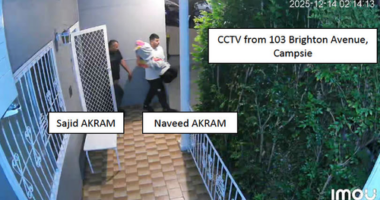Share this @internewscast.com

Cafe worker Mia McDowall was initially taken aback to find she had been short-changed by thousands of dollars, but she quickly realized this was a common issue in the hospitality sector.
The 22-year-old has worked for several employers who either underpaid her, required her to work through legally mandated breaks, or failed to transfer her deducted superannuation to her fund.
“Wage theft is certainly widespread, without a doubt,” McDowall told the Australian Associated Press.
“Most people around my age who have spent a significant time in hospitality have experienced wage losses rather than not.”
McDowall is part of more than one-third of young workers who report being short-changed, according to research from the University of Melbourne released on Tuesday.
Two-thirds were forced to pay for work-related items such as uniforms or protective equipment, almost one-third were not paid compulsory super and more than one-third were banned from taking entitled breaks, according to the research.
One in five said they had been paid off the books, almost 10 per cent were paid in food or products and 8 per cent said they never received a pay slip.
Professor John Howe, the study lead, said: “The extent of all the different ways that people are being denied their entitlements or employers are breaking the law shocked me.”
“While the majority of employers are abiding by the rules, a substantial number are skirting regulations with their younger employees whenever possible.”
About one-third reported being paid as little as $15 an hour, well below the national minimum wage of $24.95 per hour, but Howe worries the true scale of underpayments could be greater.
“It could be a lot higher, because a lot of workers weren’t sure if they were being underpaid,” he said.
“Vulnerable workers are worried about raising complaints or asking questions about their entitlements because they don’t want to jeopardise their job.”
Researchers expected to find exploitation among hospitality workers but also identified workers being ripped off in utilities industries such as gas and water, agriculture, forestry and even unionised workforces, including mining.
Some 2,814 workers younger than 30 took part in the survey conducted by the Melbourne Law School as part of its Fair Day’s Work project.
Just one in three sought assistance from a union or organization like the Fair Work Ombudsman, with Howe noting that many felt powerless about their situation.
Now a women’s organiser for Trades Hall, McDowall believes her experiences fighting for her minimum entitlements were vital in gaining the skills she needs in her new career.
She encouraged anyone to stick up for themselves, pointing to the Fair Work wage calculator and Young Workers Centre as great places to start.
“It’s so important that we are teaching young people how to determine what their pay should be and how to teach people how to have those conversations.”












